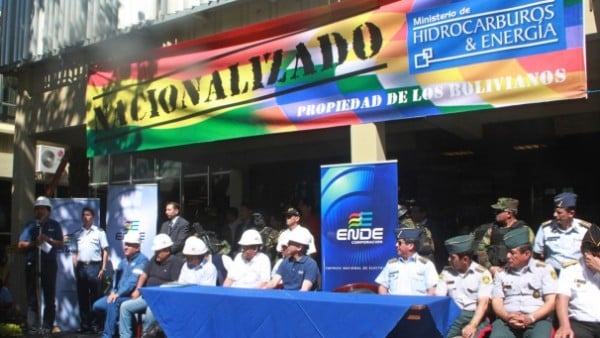
prod-euronews.euronews.net
Were I looking to invest in sovereign fixed income, say to pay for a house or travel one day, Bolivia is probably not the first place I would look. However, as of last fall, many institutional money managers disagree with me. Last October, the Bolivian government issued $500 million in bonds at the comparatively low yield of 4.875%. A low yield for a bond means a high price, so this implies robust demand. I’m sure that before the demand there was curiosity, as Bolivia hadn’t sold sovereign bonds in almost 100 years.
According to Bloomberg, the issue attracted a grand total of $4.5 billion in orders (though some of these requests came from investors wanting higher yields). The reasons why appear to be both the nation’s healthy economic fundamentals[1], and a lack of good yield opportunities in the bond market. The Bolivian economy has grown from $9 billion in 2005 to $24 billion in 2011, and the IMF estimates 5% growth in this year. Foreign currency reserves are 8 times what they were in 2005, and public debt levels are low. This is all the result of booming natural gas and commodity exports to neighboring Brazil and beyond. According to S&P, even if the government ramps up infrastructure spending, “the country’s external indicators would remain one of the strongest among the sovereigns rated in the ‘BB’ category.” “BB” is S&P’s highest non-investment grade level; the bonds are rated BB-.[2]
President Morales’ nationalizations in sectors such as electricity, mining, and telecom have likely stunted growth, but though the economy may be smaller than it should be right now, it is on a positive trajectory. It seems that Finance Minister Luis Arce is trying to attract capital by putting a smiling face on the country’s technical data, while ignoring the obvious perils to private investment. According to Andres Schipani of Financial Times’ Beyond Brics blog, one economist in La Paz wrote that “only time will tell if what we attracted were speculative capital, or serious investments.”
This bond issue has caused confusion in some investing quarters. To me, it’s a slightly less bad idea than investing with Hugo Chávez. Siobhan Morden, the Head of Latin America fixed income strategy at Jefferies Group, says, “Yes, you respect the technicals, but at the same time it is clear that the yield on offer doesn’t compensate for political risks.” Bolivia issued at a yield equal to par value, meaning investors paid full present value for each bond. This outshines bond issuances by other Latin American countries that are now investment grade but started out as lower-rated issuers, where Bolivia is today (Mexico and Colombia are examples).
It’s funny to see a successful deal that baffles people: “I realize Bolivia has current account and fiscal surpluses, but it seems that the market is just chasing anything they can get their hands on,” says Carl Ross, a Managing Director at Oppenheimer. Other sovereign bonds in Latin America, particularly those issued by higher-rated countries like Mexico and Chile, are at even lower yields than Bolivia. While this says something about Latin America’s commodity export power, it also says something about my former profession – with interest rates so low, any kind of risk at all is coveted. Kathryn Rooney Vera, an economist at Bulltick Capital Markets, calls Bolivia “kind of a frontier name.” Our money managers have eagerly set forth by caravan.[3]
[1]Kilby, Paul. “Rare Bolivia Issue Surprises Bond Market.” Bloomberg. 24 October 2012.
[2] Schipani, Andres. “Bolivia Tests Market with $500m Bond Issue.” Financial Times. 22 October 2012.
[3] McCarthy, Erin and Ken Parks. “Bolivia is Planning Global Bonds.” The Wall Street Journal. 14 October, 2012.